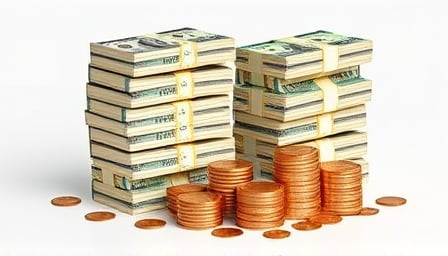Berkshire Hathaway Posts Disappointing Q1 Earnings Amid Catastrophe Claims and Investment Declines
Berkshire Hathaway Inc. has reported a significant decline in its first quarter earnings, with net profits plummeting to $4.6 billion from last year’s $12.7 billion, a staggering 64% drop. The company’s operating earnings also took a hit, falling 14% to $9.64 billion, as insurance underwriting profits halved due to a surge in catastrophe claims. Despite this, Berkshire Hathaway’s cash reserves have reached a record high of $347.7 billion, a testament to the company’s robust financial foundation.
The impending departure of Warren Buffett, the company’s long-time CEO, marks the end of an era at Berkshire Hathaway. After six decades at the helm, Buffett will step down from his position at year-end, paving the way for a new era of leadership. The company’s stock price has remained relatively stable, closing at $539.80 on May 2, a reflection of investor confidence in the company’s diversified business portfolio.
The decline in earnings can be attributed to a combination of factors, including investment losses and insurance claims. However, the company’s cash reserves remain a significant strength, and its diversified business portfolio continues to generate steady gains from its BNSF Railway and energy units. Key highlights of the company’s performance include:
- Net profits: $4.6 billion (down 64% from last year)
- Operating earnings: $9.64 billion (down 14% from last year)
- Insurance underwriting profits: halved due to catastrophe claims
- Cash reserves: reached a record high of $347.7 billion
- Stock price: remained relatively stable at $539.80 on May 2
As Berkshire Hathaway embarks on a new chapter, investors will be closely watching the company’s progress, particularly in the areas of insurance and investment management. The company’s ability to navigate the complexities of a rapidly changing market will be crucial in determining its future success.
